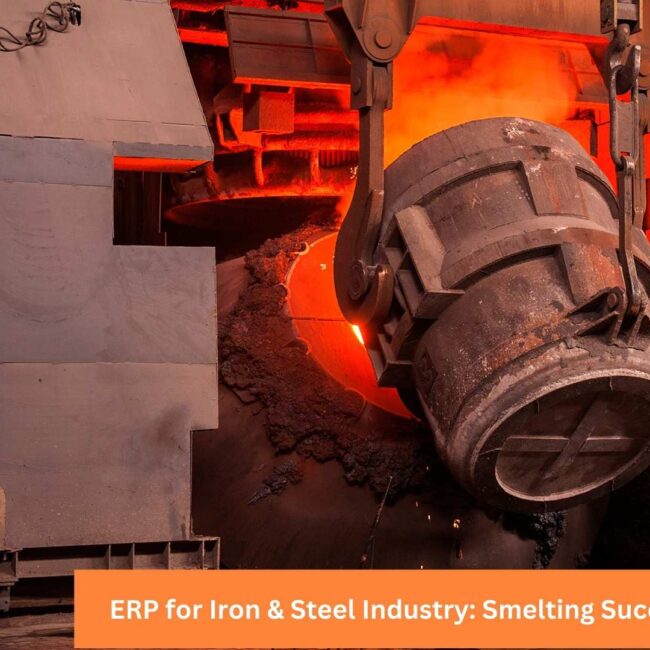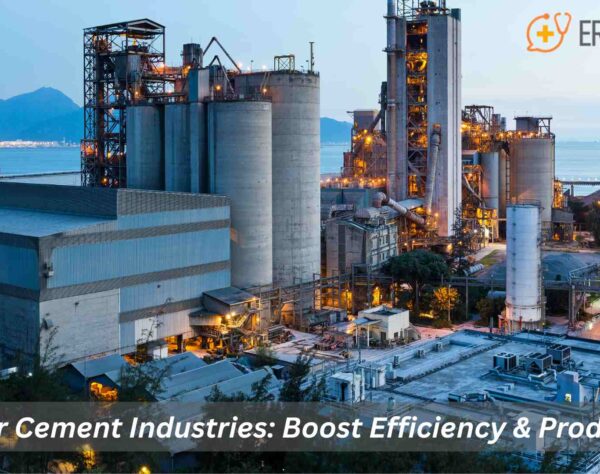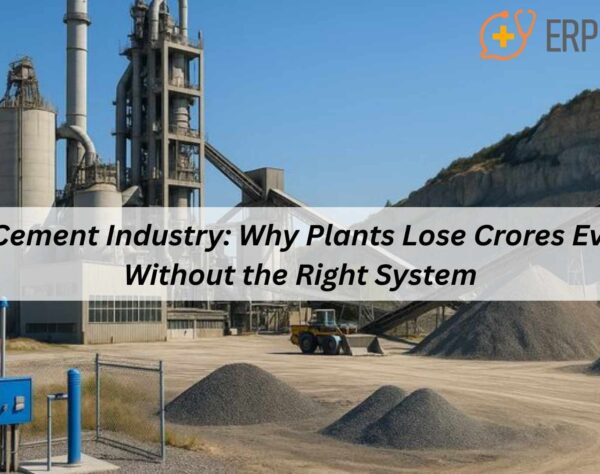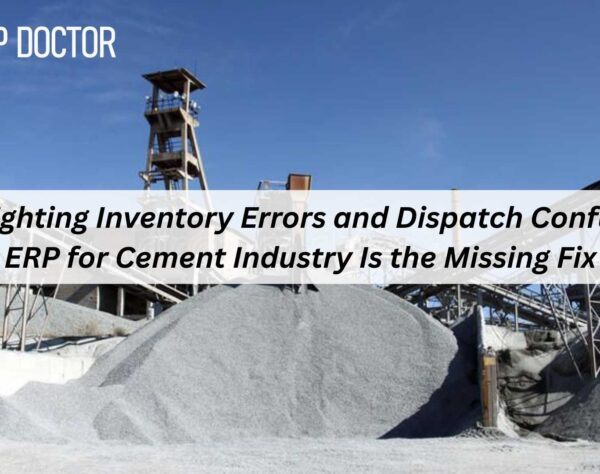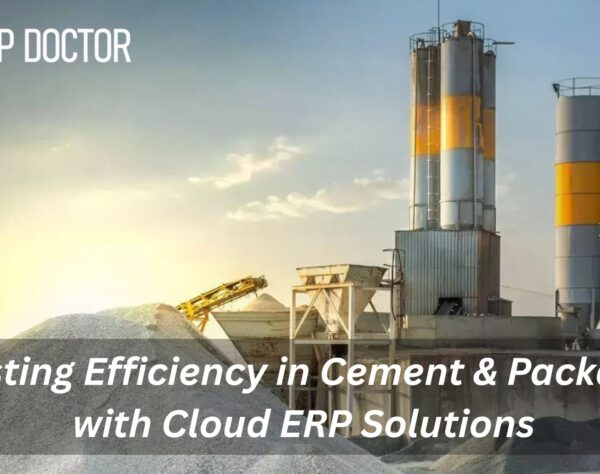
ERP in the Cement Industry: The Blueprint for Digital Success

The Hidden Power of ERP in Cement: Efficiency, Compliance, and Growth
The cement industry is the backbone of infrastructure development, but it faces several operational challenges such as high production costs, regulatory compliance, supply chain inefficiencies, and quality control issues. ERP (Enterprise Resource Planning) software offers a comprehensive solution by streamlining operations, optimizing supply chains, and ensuring regulatory compliance. In this blog, we will explore how ERP in the cement industry is revolutionizing business operations and driving digital transformation.
The Role of ERP in the Cement Industry
1. Streamlining Supply Chain Management
The cement industry relies on a complex supply chain, from raw material procurement to final delivery. ERP software enhances visibility and coordination across the supply chain, reducing material shortages and overstocking.
2. Improving Production Efficiency
With ERP solutions, cement manufacturers can automate production planning, optimize resource utilization, and minimize downtime. ERP systems also provide real-time insights into production metrics, helping businesses make informed decisions.
3. Cost Control and Financial Management
ERP solutions help cement companies monitor costs at every stage, from procurement to transportation. With integrated financial management tools, companies can maintain accurate budgets, track expenses, and improve profitability.
4. Regulatory Compliance and Reporting
The cement industry is subject to stringent environmental and safety regulations. ERP in the cement industry ensures compliance by automating documentation, tracking emissions, and generating regulatory reports.
5. Enhanced Quality Control
Maintaining high product quality is crucial in the cement sector. ERP software provides quality control modules that track material composition, production standards, and testing results, ensuring consistent product quality.
6. Optimizing Inventory Management
Excess inventory ties up capital, while shortages can halt production. ERP systems offer real-time inventory tracking, demand forecasting, and automated procurement to maintain optimal inventory levels.
7. Workforce Management and Automation
Managing labor efficiently is essential for maximizing productivity. ERP systems streamline HR operations, track employee performance, and optimize workforce allocation for different projects.
8. Seamless Integration with Emerging Technologies
ERP software integrates with IoT, AI, and cloud computing, providing predictive analytics, automated maintenance alerts, and enhanced operational insights.
FAQs
1. What is ERP in the cement industry?
ERP (Enterprise Resource Planning) in the cement industry is a software solution that integrates and automates business processes like production, inventory, supply chain, finance, and compliance.
2. Why do cement companies need ERP?
Cement companies need ERP to enhance efficiency, reduce costs, streamline operations, ensure regulatory compliance, and improve decision-making with real-time data.
3. How does ERP help in supply chain management?
ERP provides real-time visibility into supply chain processes, reducing delays, minimizing stock-outs, and optimizing procurement and logistics.
4. Can ERP improve production efficiency in cement plants?
Yes, ERP systems automate production scheduling, optimize resource utilization, reduce downtime, and provide real-time monitoring of manufacturing processes.
5. Does ERP help in regulatory compliance?
Absolutely! ERP systems maintain digital records, track emissions, ensure safety compliance, and generate regulatory reports automatically.
6. What are the financial benefits of ERP for cement manufacturers?
ERP helps in cost monitoring, budgeting, financial reporting, and expense tracking, leading to improved profitability and financial stability.
7. How does ERP enhance quality control in cement production?
ERP tracks raw material quality, automates quality checks, monitors product consistency, and ensures adherence to industry standards.
8. Is ERP suitable for small and medium-sized cement businesses?
Yes, modern cloud-based ERP solutions are scalable and affordable, making them ideal for businesses of all sizes.
9. How does ERP support workforce management?
ERP streamlines HR operations, tracks employee performance, automates payroll, and optimizes workforce allocation.
10. What are the key features of an ERP system for the cement industry?
Key features include production planning, inventory control, supply chain management, financial reporting, compliance tracking, and quality management modules.
Implementing ERP in the cement industry is essential for streamlining operations, improving efficiency, and maintaining competitiveness in an evolving market. By integrating key business functions into a unified platform, ERP helps cement companies enhance productivity, ensure regulatory compliance, and achieve long-term profitability. If you’re looking to digitally transform your cement business, investing in a robust ERP solution is the way forward!


